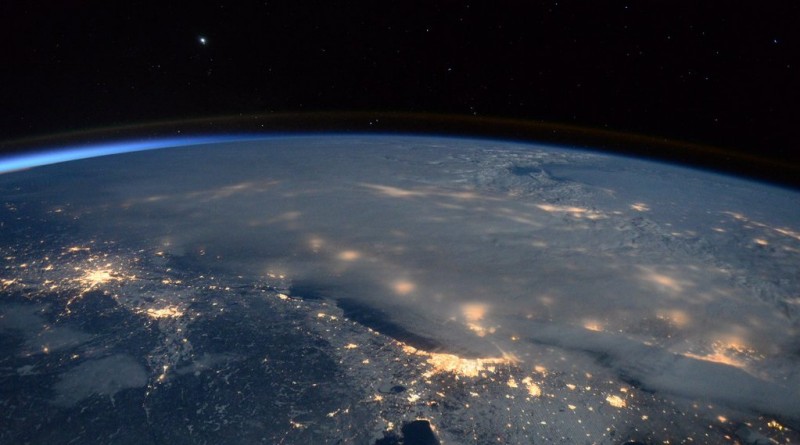ISS Operations Update – January 22, 2016

Experiments:
OASIS – Observation Analysis of Smectic Islands in Space – Removal from Microgravity Science Glovebox [OASIS (Observation and Analysis of Smectic Islands in Space) will study the unique behavior of liquid crystals in microgravity with special focus on their overall motion and merging of crystal layers which is known as the formation of smectic islands. Studying liquid crystals in microgravity will provide new insights into two dimensional system physics of complex fluids. Findings may lead to understanding of well aligned, very high speed electro-optic devices that could find use in embedded ferroelectric liquid crystal micro-displays. The experiment assembly consists of a bubble chamber that is filled with medium, air jet injectors, ink injectors, LED lights and a camera assembly that monitors the activity inside the chamber. This setup will be used to study the various aspects of fluid crystal behavior in space – looking at overall fluid motion, diffusion, and the merging of crystal film layers.]
Electrostatic Levitation Furnace (ELF) Setup in Multi-purpose Small Payload Rack 2 (MSPR2) [The Electrostatic Levitation Furnace will provide ISS with its second Materials Science facility operating on the basis of electrostatic levitation, alongside the Electromagnetic Levitator that is active aboard the Columbus laboratory, studying fundamental principles of metallurgy. Heating and melting samples of metal alloys or other materials in a zero-G environment followed by the solidification of the sample yields a very pure material without any contaminations. The study of the solidification process and the finished product can provide valuable knowledge concerning the properties of the material that could improve production techniques on Earth for better material properties in alloys, glass and ceramics.]
Ocular Health – Cardiac Ultrasounds [OH is a human physiology study. Its full name is Prospective Observational Study of Ocular Health in ISS Crews. “The Prospective Observational Study of Ocular Health in ISS Crews (Ocular Health) protocol aims to systematically gather physiological data to characterize the Risk of Microgravity-Induced Visual Impairment/Intracranial Pressure on crewmembers assigned to a 6 month ISS increment,” the NASA experiment overview said. It is known that some (not all) astronauts in orbit experience changes in visual acuity (visual clarity) and intraocular pressure as a result of fluid shifts within the body as it is subjected to microgravity. About 20% is astronauts flying to ISS have reported these kinds of changes. Test subjects will undergo pre-flight, flight and post-flight testing of their eyes using a variety of techniques.]
Reaction Self Test [The Reaction Self Test is one of the oldest studies ongoing aboard ISS, consisting of morning and evening sessions with a computer-based vigilance test performed prior to, during and after flight at different frequencies as required by the study. The sessions consist of short five-minute tests that provide an objective feedback of a crew member’s vigilance and allows an assessment of performance capability. Test sessions are also performed around sleep shifts and periods of particular tasks such as visiting vehicle support and EVAs.]
Sleep ISS-12 [The ISS-12 experiment monitors the ambient light exposure and crew member activity and collects data on the subjective evaluation of sleep and alertness. Ambient light and activity are monitored via a wrist-worn actiwatch that delivers actiwatch spectrums that are put through bio-mathematical models of sleep and light to predict circadian phase. Sleep logs will be kept by crew members as a subjective assessment of sleep quality and duration. It is hoped that this investigation can deliver requirements for lighting, sleep-shifting protocols and workloads for future space exploration missions.]
Maintenance/Systems:
Nominal Inspections/Servicing Tasks (Morning Inspection, Caution & Warning Panel Check, Sozh System Maintenance) (Russian Crew)
ISS Medical Accessory Kit (IMAK) Unpack
Other Activities:
Water Sampling from EMUs #3008 and #3011 and water conductivity testing
Russian EVA-42: Procedure & Translation Path Review

